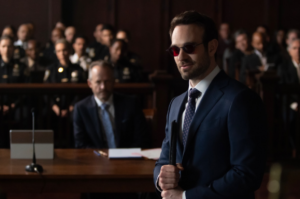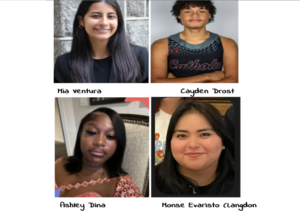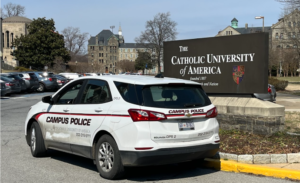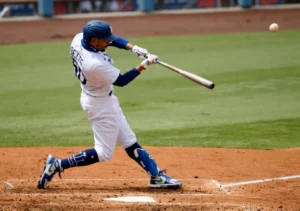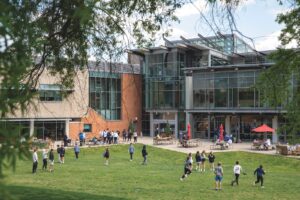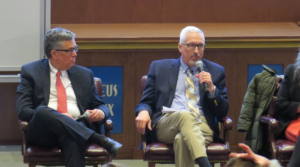“It was almost like time had stood still, and nobody had ever left the playground:” This Autism Awareness Month, We Need More Stories Like Mine

Photo Courtesy of Getty Images
By Justin Lamoureux
Let’s talk about how the challenges of my disability evolved during my teenage years.
I was a class act in high school… at least, compared to where I started off.
With each passing semester, I became an even stronger student: I successfully completed numerous college-level courses and was accepted into the National Honor Society. I was also involved with extracurricular activities, having joined the school’s marching band and community service club. My behavior in the classroom was no longer a concern. It had been several years since I’d thrown a tantrum of any kind.
But those typical milestones pale in comparison to what I still consider one of my greatest accomplishments.
In December 2017, I was discharged from my town’s special education program after having received their services for 10 years. Now a sophomore in high school, I had recently tested out during my triennial evaluations with the school psychologist. My PSAT scores (and class grades) were also much higher than people had previously anticipated, making it clear that I’d thrive in the classroom without academic support. Plus, it had become clear that I was no longer being challenged by the social skills group offered to students on the spectrum. There was nothing more they could teach me—I was ready to spread my wings and fly.
I had definitely come a long way. But the other kids didn’t seem to think so.
To many of my classmates, I never stopped being the kindergartener who routinely melted down in front of everyone. Or the fourth-grader who pushed a girl off the swing because he wanted a turn. People were still uncomfortable with me. I could tell every time I asked to join their table at lunch and they glared at me with contempt, or when I tried making casual conversation and was met with eye rolls.
You’re probably wondering: Why did I care so much? The answer is quite simple: I was ready to start making friends.
When I was younger, I didn’t have much interest in making friends. No matter what my parents did—and believe me, they tried everything—I couldn’t be bothered to play with the other kids. If my mom invited a boy from the neighborhood to swim in our pool, I went in the house to watch television. When she told me I wasn’t “being a good friend,” I just shrugged and went back to stuffing my face with Twinkies.
At school, my teachers didn’t have much luck, either. When my favorite paraprofessional came onto the blacktop at recess with a few activities to share with the boys in my class, I just walked away. I never wanted to play “monkey in the middle” on the grass or draw with chalk on the pavement. Games of kickball and skipping rope never appealed much to me, either. It was never that I didn’t like my classmates—I just didn’t care about whatever they were doing.
That all changed when I got to high school.
For the first time, I was becoming involved with activities outside the classroom. Now, I was beginning to notice the connections people really had with each other. I saw them whisper into each other’s ears and laugh. I became privy to the concept of inside jokes. When Mom took me to Dairy Queen after the football games, I’d always bump into a whole crowd of band kids there. I could tell everyone had a really good time together. It was like a totally different world… and I wanted to be a part of it.
But when I tried reaching out to my peers, I was met with radio silence.
I couldn’t understand why no one seemed to reciprocate my desire for friendship. I was nice to everyone. I was smart. I had become a part of things—I never missed a meeting of the school’s volunteer club and sat with my fellow band members on the cold metal bleachers during every football game. I had grown up—I was a team player now. But none of my classmates seemed to get the message.
Occasionally, I might hear a group of kids I knew discuss upcoming plans at lunch one day. If I asked to join them, I was met with an evasive “We’ll let you know” and promises of a text message detailing logistics that ultimately would never be sent. Or, I would be told that “We don’t have enough room in the car” or they “Already had too many people going.” Let’s be clear: I am not talking about anything formal. These were conversations about meeting up for milkshakes at a local diner or to walk around the mall where my family did most of our shopping.
Any push to involve me in big social events (where you basically had to be part of a group) was even more superficial.
This was the case when I expressed interest in attending junior prom. During an assembly related to the dance, I mentioned to a trusted female classmate that I was looking for people to attend with. When the meeting adjourned, she announced (to a crowd of our fellow students) that we had to find a date (or group) for me. Everyone seemed to agree: One enthusiastically shouted they were “on it,” while others clapped and cheered my name. But when I reached out to people later on—and I followed up with many—I was met with callous dismissal. To say I found this—and all the other passive embargos on my social inclusion—to be extremely hurtful is an understatement.
I don’t know if I was really disliked by the other kids growing up. I won’t spend any time wondering, though. It doesn’t matter anymore. But I will say this: Before college, there was never a time when I felt truly accepted by my peers. While I had a somewhat checkered past, I can promise you there were times in elementary school when my behavior made other people uncomfortable. I also didn’t help myself with the antisocial behavior I displayed back then. But I had changed. I wanted to make friends, and I had grown into the kind of person you’d want to be friends with. I wasn’t a boogeyman; I was the same guy that many of you see around campus. In temperament and social prowess, I couldn’t have been any further from my younger self.
Nobody seemed to care, though. It was almost like time had stood still and nobody had ever left the playground.


